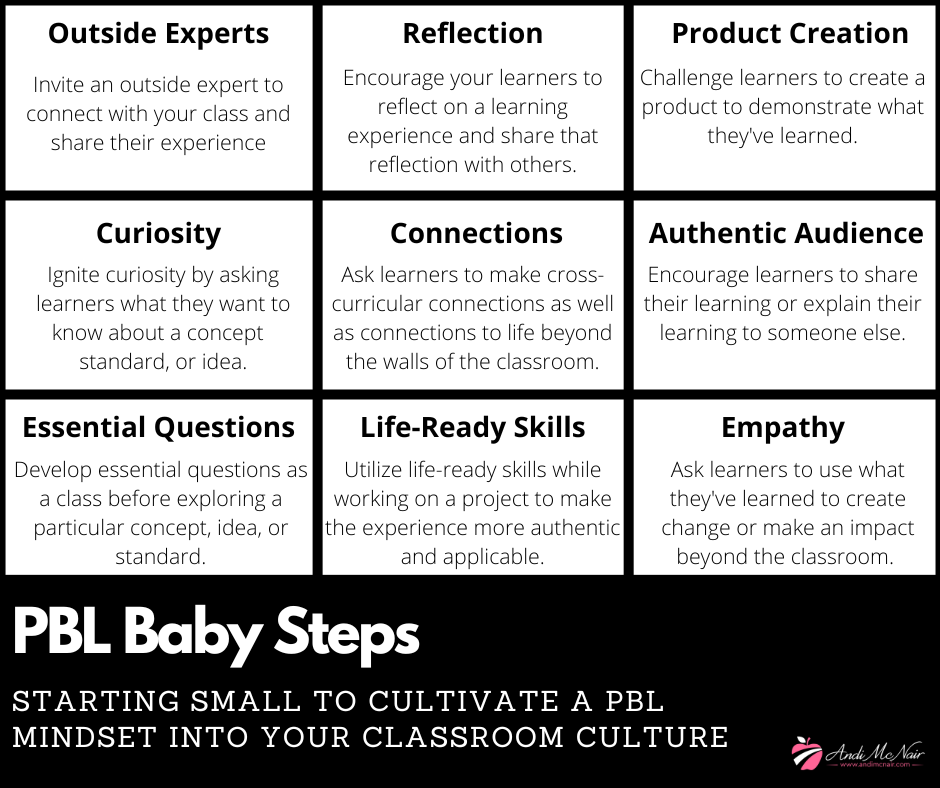PBL Baby Steps
Jan 05, 2023PBL, Project-Based Learning, has a big impact on learners. Edutopia describes this way of learning as "a dynamic classroom approach in which students actively explore real-world problems and challenges and acquire a deeper knowledge." Sounds like a good idea, yes? Definitely sounds like something that might result in true engagement from our learners. I often say that completing work, paying attention, or logging into an LMS is not engagement. That's compliance. Engagement is a willingness to invest in the learning. In my own experience, I have seen more of a willingness to invest when I made project-based learning a priority in my classroom.
I was recently asked why, with all we know about the benefits of PBL, this type of learning isn't more of of a reality within our current educational landscape. Several things came to mind with the first being time. Planning and implementing project-based learning requires time to plan, time to collaborate, and time to provide feedback. It requires a different planning mindset and can seem quite overwhelming.
As I began to share my thoughts, we wondered what it might look like to provide some baby steps for educators wanting to implement project-based learning. Jumping in feet-first might seem too risky or just too overwhelming. However, implementing small steps to cultivate a PBL mindset is completely manageable and doable. After the conversation, I sat down to consider the small pieces of project-based learning that I thought might have the biggest impact on our leaners.
This graphic can be used as a choice board for educators wanting to dive in or just encouragement to try something new in order to make learning meaningful. I hope that it's helpful and that it encourages educators to take that first small step towards PBL being a reality in their own classrooms.
I still believe that cross-curricular PBL experiences designed by teams of educators would have more of an impact within our current circumstances than any other strategy or plan. Project-based learning is relevant, collaborative, and most importantly meaningful. Meaningful learning results in true engagement...a willingness to invest. And the truth is, that without a willingness to invest, there can be no opportunity to learn.

JOIN MY EMAIL LIST
